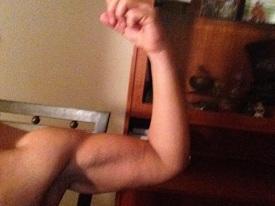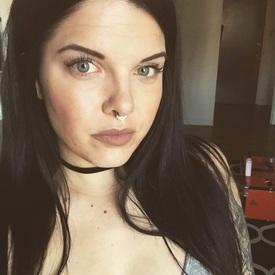What is your resting heart rate?

Phaedra2014
Posts: 1,254 Member
Mine goes from 40 to 43bpm, which is rather low. I've been seen by a cardiologist who concluded (after an echo and a stress test) that it's just me. She said that as I've increased exercise intensity, it helped condition my heart.
The down side is that I get bouts of orthostatic hypotension because I also have low blood pressure so it's not fun.
Anyhow, I was just wondering what your resting heart rate was and if anyone else has it low, does it cause you any issues?
My other question is this: When I work out, even run sprints, my HR doesn't go beyond 152 bpm. I am usually in the 140s. I guess because my starting point is so low.
Does not having my HR go up very high interfere with weight loss? I'm not sure how to word this correctly. I know you need to been in a certain range to burn more, or burn properly, so does having a low HR meddle with the process?
The down side is that I get bouts of orthostatic hypotension because I also have low blood pressure so it's not fun.
Anyhow, I was just wondering what your resting heart rate was and if anyone else has it low, does it cause you any issues?
My other question is this: When I work out, even run sprints, my HR doesn't go beyond 152 bpm. I am usually in the 140s. I guess because my starting point is so low.
Does not having my HR go up very high interfere with weight loss? I'm not sure how to word this correctly. I know you need to been in a certain range to burn more, or burn properly, so does having a low HR meddle with the process?
0
Replies
-
Last time I checked mine it was 62. My average HR is typically in the upper 160 - lower 170 range for most of my cardio workouts. If I'm doing something shorter but more intense it will jump into the upper 170s pretty fast. If I'm walking briskly it's in the mid-150 range.
As far as your lower HR impacting your weight loss, I don't have any scientific answers, but my gut reaction is that it doesn't -- if that's your high HR then you're working at your capacity.0 -
Consider yourself lucky. Mine is in the 80's. Even as a well trained athlete, I have never been able to drop it. Lower resting heart rates have been attributed to longevity.0
-
Consider yourself lucky. Mine is in the 80's. Even as a well trained athlete, I have never been able to drop it. Lower resting heart rates have been attributed to longevity.
Oh thank God, another person like me! I have always had a faster than average heart rate and felt like a mutant. Whenever we were supposed to take our heart rate in gym class mine was always the fastest, even when I was in the best shape of my life in high school. Even now, since I have been running for 5 months, on a regular basis, have gotten in somewhat decent shape, lost 40 lbs, it is still in the 80 - 90 range resting. When I run, it goes up to the 190's. Don't freak out, I won't have a heart attack, it's normal for me!! Honest!!!
BTW, I have looked up the lower resting heart rate thing and longevity and have found it to be somewhat a myth. Or at least it can't totally be proven. They say genes play a bigger role more that your heart rate. So I'll go with that one instead.0 -
Well then I guess it's all relative. You start off in the 80s and get to 190 when you run. I start lower and get to where my high range is. The stress test showed that my max is 174 bpm.
I don't know about the longevity correlation. I'm sure several other factors play a part too.0 -
Mine is around the 46-48 mark and I think running has attributed to that. Once upon a time it used to sky rocket as I had Wolff parkinson white syndrome. Had an ablation bout three years ago and haven't looked back! Ran my first marathon and ultra this year.
 0
0 -
Maximum heart rate decreases with age, so that will effect your workout ranges - not so much resting heart rate, though a decrease in it can be a sign of increased fitness.
When I started running again it went from 70 to 60. When I was really fit, it was in the 50s.
40 is very low. Have you had your BMR tested?0 -
mine was 68 last time i checked. highest i get is 185 doing plyo type exercise or sprints. average working out at about 160 though :happy:0
-
Mine is around the 46-48 mark and I think running has attributed to that. Once upon a time it used to sky rocket as I had Wolff parkinson white syndrome. Had an ablation bout three years ago and haven't looked back! Ran my first marathon and ultra this year.

Congratulations! That's a big accomplishment.0 -
I'm in the low eighties too. Sometimes it gets as low as the mid seventies, but I've got a heart murmur, so my heart has to work at it a little harder.
 My max seems to be about 155-160 if I'm pounding on the elliptical.
My max seems to be about 155-160 if I'm pounding on the elliptical.
Every body is different. My stepfather's RHR is so low that he walked into the hospital on his own power with a pulse of 40 after a minor heart attack.
I think recovery is more important anyhow - I can get from 160 down to 110 in less than thirty seconds of active cool down now (such as a treadmill), and down to about 100 in a minute. Which is a marked improvement over where I was eight weeks ago.
-Betty-0 -
Maximum heart rate decreases with age, so that will effect your workout ranges - not so much resting heart rate, though a decrease in it can be a sign of increased fitness.
When I started running again it went from 70 to 60. When I was really fit, it was in the 50s.
40 is very low. Have you had your BMR tested?
40 is low, I agree. I had a Holter put on this summer when my resting HR got down to 38. It was a 24-hour one and the numbers recorded during my sleep were crazy low! it scared me but the cardio says it's nothing to be concerned about.
How would I get my BMR tested?0 -
[/quote]
Does not having my HR go up very high interfere with weight loss? I'm not sure how to word this correctly. I know you need to been in a certain range to burn more, or burn properly, so does having a low HR meddle with the process?
[/quote]
If your RHR is already in the low 40s, I'd assume you are in excellent shape already and don't have any weight to lose.
The lower a person's RHR, the better physical shape they are in. Their circulatory system does not have to pump as much blood.0 -
My resting heart rate is 38-39 bpm.
I have been testing my heart rate during runs. (I run 300 miles a month and just finished a couple marathons and have 4 more on schedule). My long runs (14 miles and up) range in pace from 8:30 - 9:15 miles. My half marathon time is 1:44. And I have discovered that unless I am running at approx a 7:45 pace or faster, my heart rate will not climb above 150. When I run an 8:20 mile, my heart rate stays in the 120's.
This tells me I really have to be training harder to get my heart rate up. Even though all running logic says that runs should be alternating (tempo, race, recovery, endurance, etc). And the importance of recovery runs cant be overstated to avoiding injury.0 -
If your RHR is already in the low 40s, I'd assume you are in excellent shape already and don't have any weight to lose.
The lower a person's RHR, the better physical shape they are in. Their circulatory system does not have to pump as much blood.
I doubt a low HR is also an indication of not having any weight to lose. I have about 20 to 25 pounds to lose to be at a weight that works for my 5'1" height.0 -
65-67
A.C.E. Certified Personal/Group FitnessTrainer
IDEA Fitness member
Kickboxing Certified Instructor
Been in fitness for 30 years and have studied kinesiology and nutrition0 -
Hovers around the upper 50s. Then again, when I jog/run, heart rate shoots up to 170s-190s no matter how slowly I run (or indeed whether I am overweight or not, or more trained/less trained). I have also had a stress test from a cardiologist and have also been told it's just the quirky way I am and not to worry about it.
I've also had the orthostatic hypotension and fainting feeling when standing up. Doc says it's because with a slow resting heart rate, if you stand up too fast, your heart hasn't had time to do its thing to overcome gravity and get the blood up to your head yet. She said the solution is to get up a bit slower, stand still for a second, then start to walk. It's a pretty small price to pay to avoid cratering and smacking your noggin on the deck! :laugh:0 -
Last time I checked it was 59. I have hit 185+ while doing HIIT. The machines like to yell at me when my heart rate gets that high, but I don't feel like I'm working all that hard. I can still hold a conversation. I think my heart is just younger than my calendar age.0
-
Feel lucky. My resting heart rate is usually around 110, and when I even start working out at all it'll shoot up to 200 easily. It kind of freaks me out and my cardiologist tells me to only do exercises that don't get my heart working too hard. I just love getting moving though. I have a very low blood pressure though so it's a fine line to exercise, but not end up on the floor unconscious.0
-
I hit a major fitness goal and got into the 40's this month. I have a brother with a genetic heart defect and had a pacemaker put in when he was 29. I was hooked up, tested and told I had no issues when he was operated on. The last time I was this fit I did have problems with low blood pressure; not a problem this time round
 0
0 -
60-62
But i am obese :frown: and older. But hopefully it will get lower , as it is already down from 78-80 from when I started my weight loss journey!
On a side note my hr ranged from mid 40's to mid 50's in my 20s and when i was in shape.0 -
Ranges from 56 to 62.0
-
My resting heart rate is 42. I had it checked by my doctor who is really pleased with it. I am 62 years old so I am pleased with it. Again my heart rate doesn't get above 149 during exercise but I have managed to lose over 40lbs.0
-
Mine is around 50-55 when I'm not anemic. Currently around 64. I'm studying to be a registered nurse, and it may be beneficial to understand some basics of blood flow. Lower heart rate IS ABSOLUTELY associated with better cardiovascular health. The brain generally does a good job of setting your heart rate where it needs to be based on different "environmental" factors. For example, if you're dehydrated, your heart rate will be higher. Hydrating with a drink that has some electrolytes including sodium before you get dehydrated helps hydrate you better than just plain water. If you're dried out already, the salt level in your blood is generally slightly elevated and plain water should be effective in your effort to re-hydrate. Elevated heart rate is also associated with stress response including exercise obviously.
If you feel your heart rate is too slow, it probably isn't. It's not likely unless you have some disease process that you will have a heart rate that is not adequately meeting your body's needs.0 -
47-560
-
Anywhere between 60 and 95 =/0
-
58bpm in the last few months. In Jan before I started my fitness and weight loss it was between 90 and 100! Blood pressure always been perfect though, even with my 3 pregnancies.0
-
Resting is around 55. I think that is down to running, and I'm quite tall, and taller people apparently tend to have a lower resting heart rate too.
I got a new HRM for Xmas, and I've found that exercising it goes up to about 165 when I am comfortably exercising. If I push harder it goes into the 170s. I think if you watch your heart rate while you exercise for a bit, you can aim for a zone where you are pushing that bit harder and will increase fitness. Low starting rate is good though, and I can't imagine why it would stop you losing weight.0 -
58-62 and I get up to 172 when running hard, long comfortable runs ave out at around 150. At my age quite happy with that.0
-
high 50's to 60
I used to get to 180 during a long sports conditioning class but now it's usually around 140-160's during running or CrossFit. I generally stop exercising prior to vomiting so I would be very surprised if I could get to 170 without hurling.0 -
Until April this year my resting heart rate was 38-40bpm, i was diagnosed with Hyperkalemia, since then I've cut out most potassium from my diet, and it's gone up to 44. I have like most in my family naturally low blood pressure and a slow resting heart rate.0
-
Does not having my HR go up very high interfere with weight loss? I'm not sure how to word this correctly. I know you need to been in a certain range to burn more, or burn properly, so does having a low HR meddle with the process?
If your RHR is already in the low 40s, I'd assume you are in excellent shape already and don't have any weight to lose.
The lower a person's RHR, the better physical shape they are in. Their circulatory system does not have to pump as much blood.
I'm still overweight by 60-70 lbs. Since I've gotten my trampoline (a big one) and have been bouncing a lot, my rate has gone from around 80 down to around 50-55. It was 49 not long ago, which freaked me out a little. It's really good for a woman my age.
Edited to fix the quotes.0
This discussion has been closed.
Categories
- All Categories
- 1.4M Health, Wellness and Goals
- 398.2K Introduce Yourself
- 44.7K Getting Started
- 261K Health and Weight Loss
- 176.4K Food and Nutrition
- 47.7K Recipes
- 233K Fitness and Exercise
- 462 Sleep, Mindfulness and Overall Wellness
- 6.5K Goal: Maintaining Weight
- 8.7K Goal: Gaining Weight and Body Building
- 153.5K Motivation and Support
- 8.4K Challenges
- 1.4K Debate Club
- 96.5K Chit-Chat
- 2.6K Fun and Games
- 4.8K MyFitnessPal Information
- 12 News and Announcements
- 21 MyFitnessPal Academy
- 1.5K Feature Suggestions and Ideas
- 3.2K MyFitnessPal Tech Support Questions






















